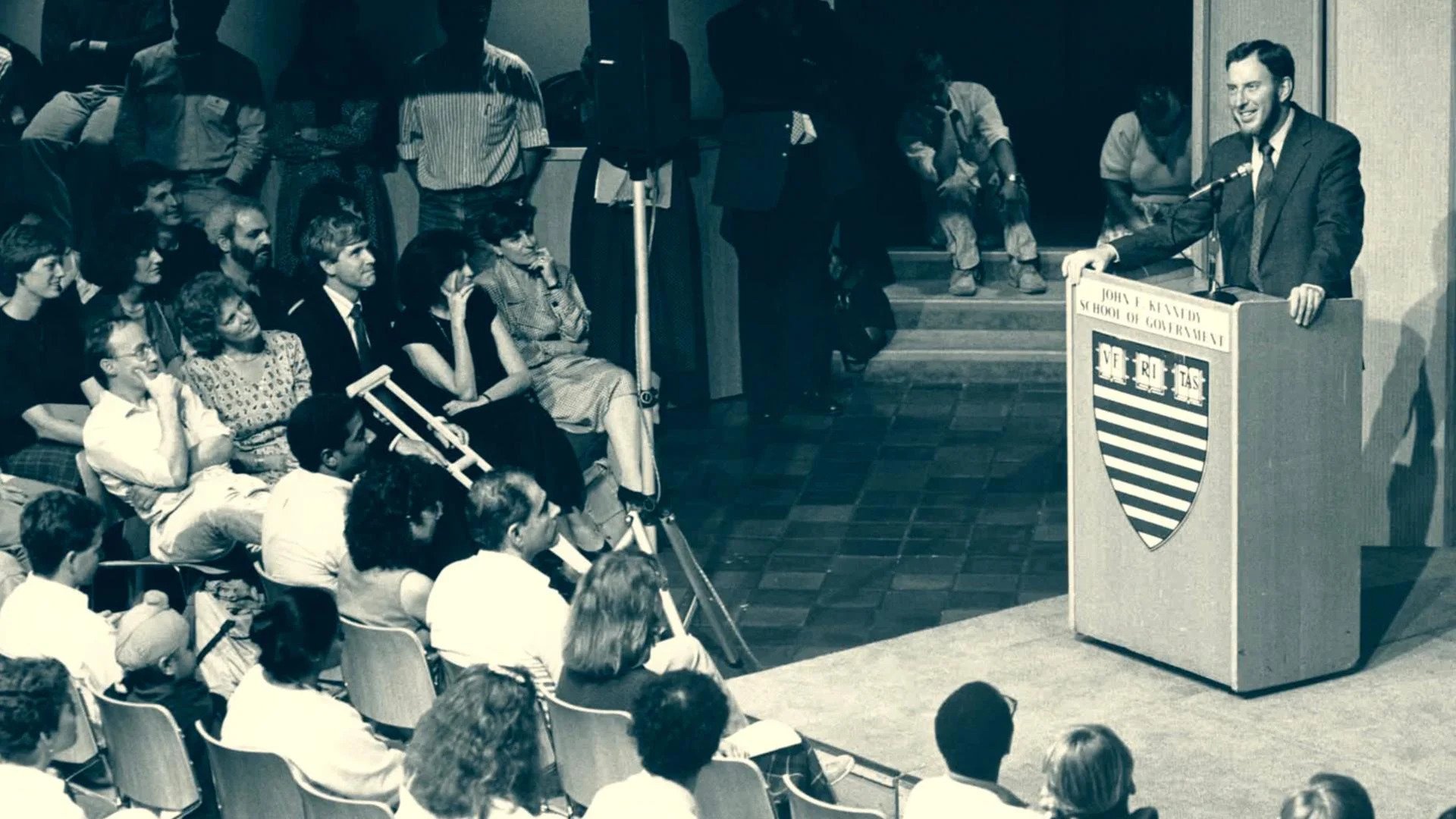JOIN OR DIE traces social scientist Robert D. Putnam’s life work in studying the decline of civic engagement in the United States over the last half-century. The film offers Putnam an opportunity to reflect on two of his highly influential works, Bowling Alone: The Collapse and Revival of American Community (2000) and Making Democracy Work: Civic Traditions in Modern Italy (1994), which name social capital as an essential element for a thriving democracy. As well, the documentary features commentary by high-profile politicians, academics, and columnists (including Hillary Clinton, Pete Buttigieg, Priya Parker, Hahrie Han, Glen Loury, and David Brooks to name a few) on the impact of Putnam’s work and the challenges facing civic engagement today. Peppered throughout the documentary are brief vignettes of everyday U.S. citizens participating in civic activities: A Black woman organizing a monthly cycling day in Atlanta, Georgia; A white woman and her work with a local religious organization; A Pakistani man finding belonging in a local chapter of the Odd Fellows Lodge in Waxahachie, Texas; An Indigenous-Zapotec woman describing the creation of Cielo, a women-led organization supporting and advocating for the rights of Indigenous immigrants in Los Angeles, California. Ultimately, JOIN OR DIE leaves the viewer with a poignant demand: Participate in civic life again and join a club today, lest we see the death of democracy as we know it.
As much as the film calls for communities nationwide to come together to socialize and advance their interests, it falls short of naming the long-term challenges of sustaining civic projects and the practices needed to address these issues. In its attempt to offer an all-encompassing national narrative of civic engagement, it leaves more questions than answers: How will the response to JOIN OR DIE differ as it is viewed across the U.S., especially in marginalized communities forced into civic engagement to advocate for the protection of their lands and communities, as well as their equal treatment under the law? Is this a film about cultivating civic engagement across differences? Is it a celebration of a political scientist’s illustrious career? Is it both? Perhaps, like other films of broad scope, the questions that viewers are left with are the point since questions are often seeds of change–powerful tools for challenging the status quo and founding movements that can reshape a nation.
As a 32-year-old, I have spent more than half my life engaging in civic organizing centering Native Hawaiian communities on Hawaiʻi Island, Oʻahu, and Colorado. My earliest experiences stem from my upbringing in the working class Hawaiian Home Land community of Keaukaha in Hilo, Hawaiʻi. In my late teens, I did my best to stay involved in community affairs and served as the president of our school’s Student Council and Interact Club. I also joined a group called Independent Leaders of Aloha United, who helped me to produce a small community publication that spoke of our community’s founding history (which, unsurprisingly, was rooted in civic organizing!). When I think back to my time as an ʻōpio (young person), I think of my kūpuna (elders) and kumu (teachers) constantly reminded me and my peers of our future kuleana (right, responsibility) to lead our community and to build on the foundation they would leave behind. I still carry this sense of obligation and commitment to Keaukaha and continue to figure out how I can support my beloved community, even though I no longer live in the community.
These experiences and many others over the years have taught me a lot about the challenges of sustained community organizing in the 21st century, especially in these times of intense political polarization and climate catastrophe. One of those challenges includes having effective leadership that is experienced in communicating across differences and transparent in their decision-making processes. Another is the enduring challenge of succession planning while demonstrating to young people the value of civic organizations in advocating for and bringing together our communities. And these challenges merely touch on complex social and societal processes of deep-rooted community organizing. Yet, I offer them here to begin naming some impediments to sustained civic engagement we face today. In watching JOIN OR DIE, I invite viewers to do the same and to actively consider the lessons that might be gleaned from the film as we continue struggling to create a multiracial and multicultural democracy that is truly by and for the people.
Halena Kapuni-Reynolds (Kanaka ʻŌiwi) was born in Hilo and raised in the Hawaiian Home Land community of Keaukaha and the rainforest of ʻŌlaʻa on Hawaiʻi Island. Over the years, Halena has volunteered to serve on the advisory and executive boards of various Hawaiian and Hawaiʻi-based organizations, including the Piʻilani Hawaiian Civic Club of Colorado, the Keaukaha Community Association, the Hawaiʻi Museums Association, and the East Hawaiʻi Cultural Center.
Beginning in 2010, Film for Thought (FFT), a collaborative program between HIHumanities and HIFF, was born. Film For Thought is a special program designed to inspire critical discourse and community dialogue through the medium of film. Celebrating the longstanding relationship between HIHumanities and HIFF, FFT features a select group of films that resonate particularly with aspects of the humanities. As part of this programming, HIHumanities invites humanities scholars to respond to these selected films through written essays and panel discussions.



